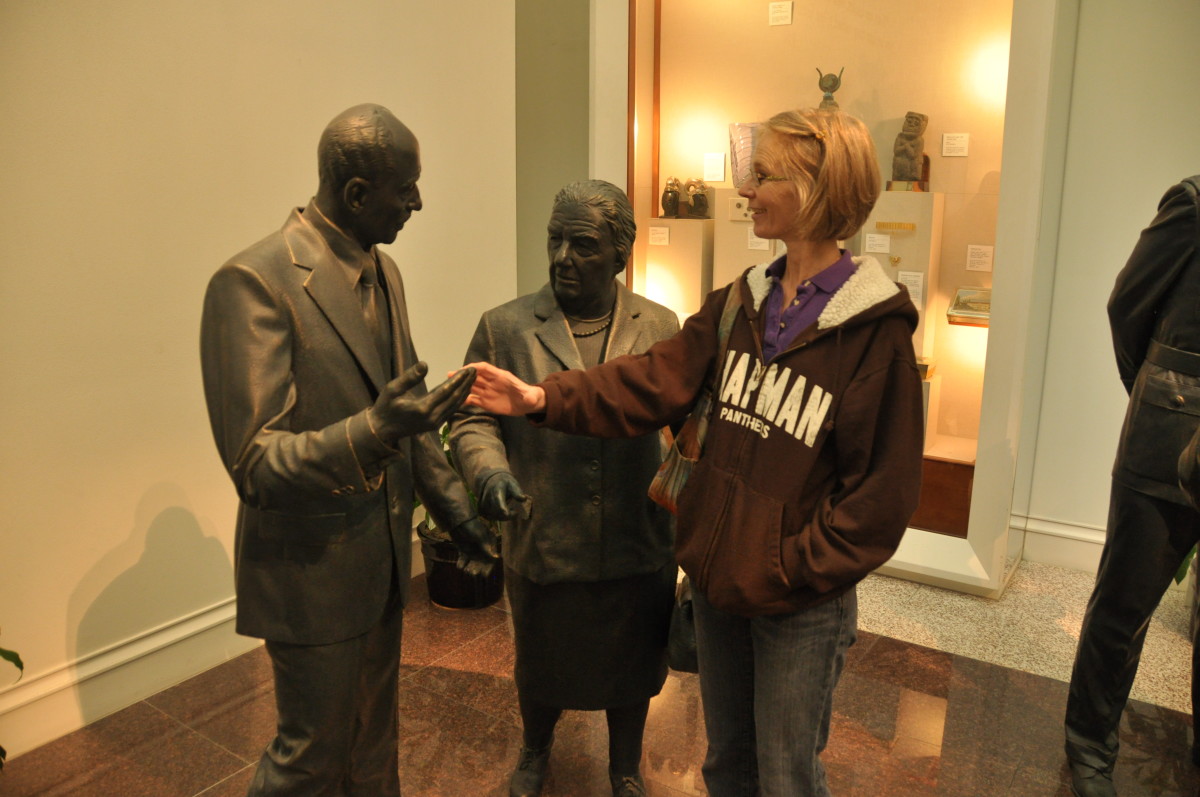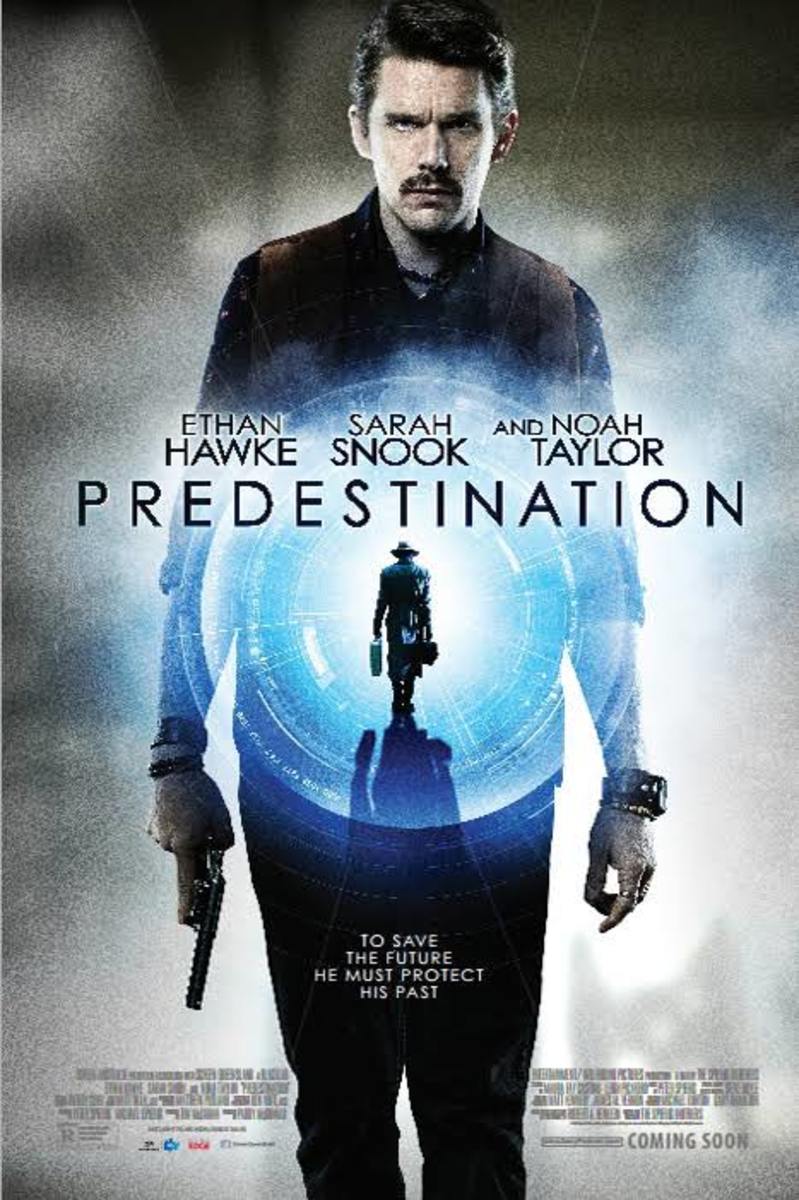Lions for Lambs Movie Review
A Good Movie Despite its Politics
The acting and cinematography in this movie are good.
It is also an entertaining and somewhat thought provoking movie. While the overall theme of the movie appears to be anti-war, some of its best arguments tend to be pro-war.
While the producers may have wanted to make a compelling anti-war (and anti-Bush) film, it appears that it was the accountants, with their eye on the box office draw, rather than the producers and writers, who shaped the final product.
The little military action in the film takes place in Afghanistan the theater of the War on Terror that receives the least publicity and generates the least controversy, rather than Iraq.
While this dilutes the anti-war theme, it does make the movie appealing to both liberals and conservatives thereby increasing viewership.
Chalk up one for the accountants.
Conservatives, Not Liberals, Take Action Here
The film has two parallel story lines with one taking place in Washington and the other in a history professor's office on a distant college campus.
Tying the two stories together is a secret military mission in Afghanistan that takes place during the hours covered by the movie.
The movie begins in a military special ops briefing room in Afghanistan and then shifts to the Washington office of Senator Jasper Irving (played by Tom Cruise) an former military intelligence officer and now a bright young Republican Senator with his eyes on the White House.
In the office with the Senator is Janine Roth (played by Meryl Streep), an aging journalist in whom once burned the fiery passion of a political liberal out to change the world but is now consumed mainly by keeping her job until she can afford to retire.
Roth once wrote a stirring article which helped launch Irving's political career by identifying him as a leader among a new breed of Republicans with bright ideas.
Now Irving is trying to repay the favor by giving her a scoop on a new battle strategy that he and the Pentagon have developed to help us win the War on Terror.
His other motive, of course, is to help sell the new strategy by having a respected journalist introduce the strategy to the public.
Irving cleverly points out to Roth that the first implementation of the new strategy is being launched in Afghanistan at the very moment they are speaking and she will be the first to get the news of the expected victory.
That is, provided she helps him by coming on board and promoting the strategy.
A Liberal College Professor Advises a Student to Go to War
Meanwhile, in another part of the country, a college student named Todd Hayes (played by Andrew Garfield) makes his way to an early morning meeting in the office of Professor Stephen Malley (played by Robert Redford who also directs the movie) his political science teacher.
Todd Hayes is a bright young student with a desire to graduate, get a good job and achieve the American dream of financial success.
However, Professor Malley feels that Todd should employ his talent and ambition in changing the world with social activism rather than in productive employment in pursuit of personal wealth.
While Malley's lecture consists mainly of the traditional 1960s liberal mix of guilt and activism.
However, the best contemporary example he can come up with for Todd to follow is that of two of his former students, Earnest Rodriguez (played by Michael Pena) and Arian Finch (played by Derek Luke).
Both of these former students have the burning desire to change the world that Malley fervently admires.
Unfortunately for Malley's liberal idealism, both young men felt they had a duty to join the Army and fight with a special forces unit in Afghanistan.
For Malley, who saw action in Vietnam as a draftee and then returned home and took to the streets as an anti-war protester, the choice of these young men was hard to swallow.
Despite his disappointment with his former students' choice, he did admire their desire to change the world and their taking action rather following the traditional middle class goal of choosing a career and family.
Movie Highlights Decline of 1960s Liberal Activism
For a political conservative, like me, a big part of the appeal of this movie is its, in my opinion, rather accurate depiction of the intellectual bankruptcy and ongoing decline of 1960s liberal activism.
Conviction and action are the virtues admired by Malley and Roth but, it is the two students, Rodriguez and Finch, who take action by volunteering to go to war as members of a elite fighting unit, along with Republican Senator Irving helping to devise and spearhead a bold new fighting strategy.
The disturbing thing about the movie was the view that Malley and Roth refused to give up, even if it meant supporting, as Malley did, actions promoting a cause that these two considered politically and morally unacceptable simply because that was the only action available.
Malley summed it up nicely when he told Todd Hayes that it is better to have tried and failed than to not try at all. As advice to a lover, an entrepreneur or a soldier on the battlefield this is excellent.
20th Century Showcased the Human Disaster Resulting From Idalists' Actions to Improve the Worl
As 20th century history has shown, in the hands of idealistic political activists out to change the world, the idea of action for the sake of action in trying to change the world has proven to be deadly.
In my Hub entitled Anarchy Reconsidered I cited statistics from University of Hawaii Professor R.J. Rummel's Power Kill's website in which he lists 35,654,000 as the total number of military and civilian deaths from the wars fought in the 20th century.
This number pales compared to Professor Rummel's next statistic of 119,394,000 as the number of people who died at the hands of their own government during the same century.
None of these 119,394,000 deaths were those of criminals legally executed for crimes.
Instead, all were the victims of various cleansing operations initiated by rulers like Vladmir Lennin, Adolph Hitler, Mao Tse Tung (Mao Zedong), Joseph Stalin, Pol Pot and other idealists seeking to remake the world to fit their vision of a perfect society.
Idealism in areas of life other than politics is great. However, in politics it usually proves deadly.
In areas of life outside of politics and government one is forced to work cooperatively and encourage others to share in their vision.
In politics, idealists have access to the the government's ability to use deadly force as a short cut to achieving their dreams of a better society.
Government is the only social institution that is legally entrusted with the right to use deadly force to enforce its will.
Such power is needed to motivate people to obey the law, to stop criminals from attempting to impose their will on society, to halt foreign invaders, etc.
However, when idealists get control of government they not only get access to the deadly force available to the military and police but are also able to cloak their ambitions with the legitimacy of the state.
Professor Malley and Jenine Roth may look back fondly on the activism of their youth. However, the fact is that the people the 1960s generation who made the greatest changes in the world were not the activists or politicians, which is what many activists became.
Instead it was business people like Bill Gates (Microsoft), Steve Jobs (Apple Computer), Frederick Smith (FedEx) and others who created productive jobs and produced things that made life better for people.
And, unlike the activists who sought to force people to think and act according to government dictates, these business giants allowed each individual to freely decide whether or not they wanted to purchase and use the products and use that their businesses produced.
George Washington Would Be a Better Example to Follow
Todd Hayes would do well to ignore Professor Malley and persist in his intention of finding a good job and pursuing the American dream.
Todd could always point out the example of George Washington who started life in economic circumstances similar to Todd's and then went on to become one of the wealthiest men of his era.
While Washington took time out to serve in the Army and engage in politics, these were more a way to help his fellow countrymen than the focus of his life. While Washington's actions resulted in a huge, and positive, change in the world, he was humble in his use of power.
Washington set the nation on a course that led to its greatness. But, unlike other famous military figures, such as Napoleon Bonaparte, Simon Bolivar, etc., who led their people to victory on the battlefield created a strong nation, George Washington never attempted to force the people to follow his dream for the nation.
Instead, Washington stepped aside and let the people build the country.
After defeating the British Empire on the battlefield, George Washington was not only a great hero to the nation but he was one of the very few men known throughout the thirteen colonies.
He had the support of the people, an army that was ready for follow him anywhere and corps of loyal officers eager to do his bidding.
The only thing that stood between him and absolute power was a Congress made up of men about as respected as those in Congress today.
Yet, having completed the job Congress had entrusted him with, he sent his troops home, took leave of his officers, surrendered his command to Congress and went home to resume his life as a farmer.
Lions for Lambs Trailer
Links to Some of My Other Movie and Book Reviews
- Washington and Caesar - A Book Review
In the struggle for independence, many of our Founding Fathers saw the contradiction in seeking freedom for the nation while also fighting to preserve the institution of slavery. In this novel we see George Washington struggling internally with this - Marco Polo, If You Can - A Cold War Spy Novel about a Real Mission
More than fifty years after the American U2 spy plane was shot down by the Soviets in 1960 questions about that ill fated mission still remain. Author William F. Buckley Jr. in his gripping spy novel "Marco Polo, If You Can" offers an intriguing the - The Bormann Testament a Thriller about Hunting for Hitler's Secretary Martin Bormann
Using the mystery surrounding the disappearance of ex Nazi Martin Bormann, Adolph Hitler's private secretary, writer Jack Higgins provides an action packed Cold War spy thriller. - Russian Spies in the Film SALT and in Contemporary America
SALT a spy thriller about old line Soviet sleeper agents being activated in modern day America. Weeks prior to the movie's release the FBI busted expelled some comical modern day Russian sleeper agents giving a nice marketing boost to the movie.










